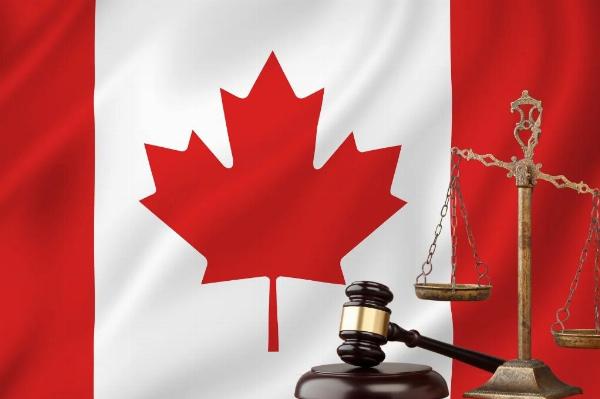Pardon - A Legal Forgiveness for Past Mistakes

Strong 8k brings an ultra-HD IPTV experience to your living room and your pocket.
A pardon in Canada, also known as a record suspension, is a formal process that allows individuals convicted of a crime to have their criminal record set aside. This procedure plays a crucial role in the rehabilitation and reintegration of offenders into society, acknowledging that people can change and deserve a second chance. This article will explore what a Canadian pardon entails, its necessity, the benefits it provides, and its validity, all framed within the context of legal forgiveness for past mistakes.
Understanding Canadian Pardon
Definition and Scope
A pardon in Canada is a legal process governed by the Criminal Records Act (CRA). It involves the removal of an individual's criminal record from the Canadian Police Information Centre (CPIC) database, effectively sealing the record from public access. The Parole Board of Canada (PBC) is the authoritative body responsible for granting pardons.
A pardon does not erase the fact that an individual was convicted; rather, it separates the individual's past criminal record from the general criminal records available to the public. This means that, while the record still exists, it is not visible during standard background checks for employment, housing, or volunteering, unless in exceptional circumstances.
Eligibility Criteria
To be eligible for a pardon in Canada, an individual must meet certain criteria:
Completion of Sentence: The individual must have completed all aspects of their sentence, including jail time, probation, and any fines.
Waiting Period: A specific waiting period must elapse from the completion of the sentence before applying for a pardon. This period is:
• Five years for a summary conviction (less serious offenses).
• Ten years for an indictable offense (more serious offenses).
Demonstrated Good Conduct: The applicant must demonstrate good conduct during the waiting period. This means avoiding further criminal activity and generally abiding by societal norms.
Application Process
The process of applying for a pardon involves several steps:
• Obtaining Necessary Documents: The applicant must gather all relevant documents, including criminal records, court information, and police checks.
• Filling Out the Application: The applicant must complete the official pardon application form provided by the Parole Board of Canada.
• Submitting the Application: The completed application, along with all necessary documents and a processing fee, must be submitted to the PBC.
• Review and Decision: The PBC reviews the application, and if all criteria are met, a pardon is granted.
The Need for a Canadian Pardon
Rehabilitation and Reintegration
One of the primary needs for a pardon is the promotion of rehabilitation and reintegration of offenders into society. When individuals are continually punished for their past mistakes through a permanent criminal record, it can hinder their ability to rebuild their lives. A pardon provides a pathway for these individuals to move forward, emphasizing that they have paid their debt to society and are ready to contribute positively.
Employment Opportunities
A criminal record can be a significant barrier to employment. Many employers conduct background checks and may be reluctant to hire individuals with a criminal history. By granting a pardon, the record is sealed, allowing individuals to apply for jobs without the stigma of their past convictions. This can significantly enhance their prospects for stable employment and financial stability.
Housing and Education
Similarly, a criminal record can affect an individual's ability to secure housing and educational opportunities. Landlords and educational institutions often perform background checks, and a criminal history can lead to discrimination. A pardon removes this barrier, enabling individuals to access housing and education on a more equitable basis.
Social Stigma and Personal Growth
Living with a criminal record can carry a heavy social stigma, affecting personal relationships and self-esteem. A pardon serves as an official recognition of an individual's efforts to change and improve their life. It provides a sense of closure and allows individuals to rebuild their identity free from the shadow of their past mistakes.
Benefits of a Canadian Pardon
Improved Employment Prospects
As mentioned, one of the most significant benefits of a pardon is the improvement in employment prospects. With a clean record, individuals can pursue career opportunities without the fear of discrimination based on their past convictions. This not only benefits the individual but also contributes to a more inclusive and diverse workforce.
Access to Housing and Financial Services
A pardon opens doors to better housing opportunities. Landlords are more likely to rent to individuals with a clean record, reducing the risk of homelessness and unstable living conditions. Additionally, it can facilitate access to financial services such as loans and mortgages, which are often restricted for those with criminal records.
Enhanced Social Integration
By removing the stigma associated with a criminal record, a pardon facilitates better social integration. Individuals can engage more freely in community activities, build healthy relationships, and participate in civic duties without the burden of their past offenses. This promotes a more inclusive and supportive society.
Personal Empowerment and Psychological Relief
Receiving a pardon can be a powerful affirmation of personal growth and change. It provides psychological relief, boosting self-esteem and confidence. Knowing that their past mistakes no longer define them, individuals are empowered to pursue their goals and aspirations with renewed vigor.
Legal Forgiveness for Past Mistakes
The Concept of Legal Forgiveness
A pardon embodies the concept of legal forgiveness. It is an official acknowledgment that the individual has been rehabilitated and deserves a fresh start. This legal forgiveness is not about erasing the past but about recognizing that people can change and should not be perpetually punished for their mistakes.
Restorative Justice
The idea of a pardon aligns with the principles of restorative justice, which focuses on repairing the harm caused by criminal behavior through reconciliation and reintegration rather than retribution. By granting a pardon, the justice system acknowledges the individual's efforts to make amends and encourages their successful reintegration into society.
Symbolic and Practical Implications
A pardon has both symbolic and practical implications. Symbolically, it represents societal acceptance and the belief in second chances. Practically, it removes significant barriers to employment, housing, and social participation, enabling individuals to lead productive and fulfilling lives.
Validity and Limitations of a Canadian Pardon
Scope of Validity
A pardon in Canada is valid nationwide and must be respected by all federal, provincial, and territorial authorities. Once granted, the criminal record is sealed, and the individual is legally entitled to answer "no" when asked if they have a criminal
record for most purposes. This sealing of records applies to all CPIC checks, which are the standard background checks conducted by most employers, landlords, and institutions.
Limitations and Exceptions
Despite its broad validity, there are some important limitations and exceptions to be aware of:
Certain Professions and Positions: For certain professions, especially those involving vulnerable populations (e.g., children, the elderly), additional background checks may still reveal a pardoned record. For instance, the Vulnerable Sector Check can disclose a pardoned record if the crime was of a sexual nature.
International Travel: A Canadian pardon does not guarantee entry into other countries. For example, the United States does not recognize Canadian pardons, and a person with a pardoned record might still be denied entry or face complications at the border.
Subsequent Offenses: If an individual with a pardon commits another crime, the record suspension can be revoked, and the original conviction will again be part of their public criminal record.
Military and Government Positions: Certain high-security government and military positions might still require full disclosure of past criminal convictions, including those that have been pardoned.
Revocation and Cessation
A pardon is not absolute and can be revoked under specific circumstances. The Parole Board of Canada can revoke a pardon if the individual is subsequently convicted of a new criminal offense or if it is found that the pardon was obtained through false or misleading information. Additionally, if the individual breaches certain conditions set by the Parole Board, the pardon can be rescinded.
Sealed but Not Erased
It is crucial to understand that a pardon does not erase a criminal record; it merely seals it from public view. Law enforcement agencies and the judiciary still have access to the sealed records if needed for investigative or judicial purposes. However, for most civilian purposes, the record remains inaccessible.
A Canadian pardon, or record suspension, is a vital mechanism for legal forgiveness, allowing individuals to move past their criminal convictions and reintegrate into society. It serves numerous purposes, from enhancing employment and housing opportunities to reducing social stigma and promoting personal growth. While it does not erase the past, it acknowledges the potential for change and offers a chance to rebuild one's life free from the shadow of previous mistakes.
The need for pardons underscores the importance of a justice system that values rehabilitation and reintegration. By providing a pathway for individuals to demonstrate their reformation and earn a fresh start, pardons contribute to a more equitable and inclusive society. Although there are limitations and the potential for revocation, the benefits of a pardon for those who have genuinely turned their lives around are substantial and transformative.
A pardon is not merely a legal formality; it is a profound gesture of societal forgiveness and an essential tool for fostering a more compassionate and just community.
Note: IndiBlogHub features both user-submitted and editorial content. We do not verify third-party contributions. Read our Disclaimer and Privacy Policyfor details.


